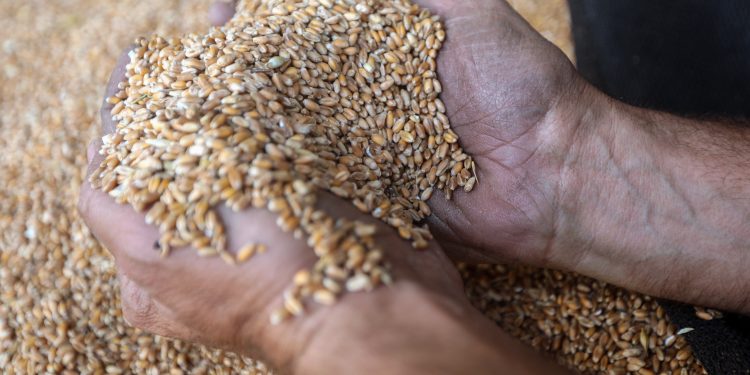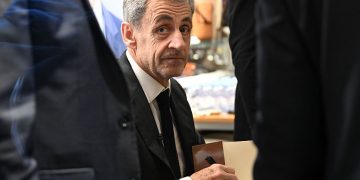Food shortages are beginning to cast a shadow over the world. One long-term factor is the warming of our planet, which has slowly destroyed agricultural land. But the proximate cause of greatest concern is the war in Ukraine and Russian President Vladimir Putin’s Black Sea blockade, which is preventing Ukrainian grain and fertilizers from leaving the port of Odessa.
This is an extremely urgent problem, and policymakers are rightly scrambling to solve it. But there is also a generic problem, beyond the immediate emergency, that needs to be understood if we are to overcome the current food crisis. It arises from our failure to keep pace with the march of economic globalisation by implementing global policy and conventions.
Since late 2019, the world has been in relentless crisis mode as a result of the COVID-19 pandemic, supply-chain disruptions, and now Putin’s war of aggression against Ukraine. This train of crises has naturally left all concerned citizens rushing to put out one fire after another. But, if we spend all our resources fighting fires, we will probably fail to produce innovative flame-resistant institutions. In this spirit, I want to step back from our immediate concerns, grave as they are, to address their underlying causes.
Some of these causes are clearly visible, starting with the Russian blockade around Ukraine. Until 2021, Ukraine exported roughly 17 million tonnes of wheat annually, or 8.5 per cent of the world’s total. But it is not immediately clear why this should lead to such a big increase in wheat prices, and to the dangers of global food shortages and famine that we are seeing today. After all, most countries have some buffer stocks and should be able to absorb this shock.
The answer lies in the behavioural response of national and local governments and even of individuals. When global policy coordination is poor, the natural reaction to news of some shortage is to hoard supplies. We know this from studies such as Amartya Sen’s classic work on the 1943 Bengal Famine, and we see it happening now.
While Ukraine has halted its wheat exports because it had no option, other countries have chosen to stop or curtail shipments. India, for example, announced a virtual ban on wheat exports May 14. And it is not alone; 26 countries have limited their wheat exports to ensure that they have sufficient supplies for their own citizens. All this is causing global wheat prices to rise precipitously. India’s announcement alone triggered a 6 per cent price increase.
A similar phenomenon occurs at the household level. Once fear of shortages sets in, people stock up on more food than they immediately need in order to guard against a full-blown crisis. Yet, these small actions by millions of people, along with local and national government policies, can end up causing just that.
This is not unique to food. We have seen the same thing happen with vaccines: Countries acquire far more doses than they need in order to guard against the possibility of a future shortage. Such hoarding explains some of the glaring global inequities in access to COVID-19 vaccines.
If such responses were inevitable, we would have to treat them like the law of gravity, which is not something we can do anything about. But there is much we can do through collective action to overcome shortages that the market cannot fix. A system of global buffers or an international agreement that countries with a surplus must help others during times of scarcity would go a long way toward solving much of the problem. Just like the introduction of deposit insurance put an end to bank runs, most people would stop hoarding once they had confidence that this system worked, and that in itself would help avert a crisis.
If this sounds like wishful thinking, consider what happened in India, a country with a history of food shortages and hoarding. Longstanding efforts to establish a national public food distribution system resulted in a major improvement in 1992 and culminated in the 2013 National Food Security Act. With a sophisticated system of minimal food guarantees in place for three decades, the psychology of hoarding at the household level has diminished, which in turn has diminished the need to hoard.
Global agreements and buffers to mitigate food crises may seem impossible. But a similar arrangement at the national level for a large country like India also was thought to be out of reach until it happened. Likewise, large republics like the United States had seemed impossible until the US Constitution was ratified. The fact that a successful global or regional buffer system or surplus-sharing agreement has never existed is not a reason to give up hope.
This argument carries over from food to other economic and social domains. Despite recent hiccups, the march of globalisation will not end, so we must try to establish minimal global conventions and agreements to prevent it from trampling the most vulnerable.
The writer, a former Chief Economist of the World Bank and Chief Economic Adviser to the Government of India, is Professor of Economics at Cornell University. ©Project Syndicate.






































